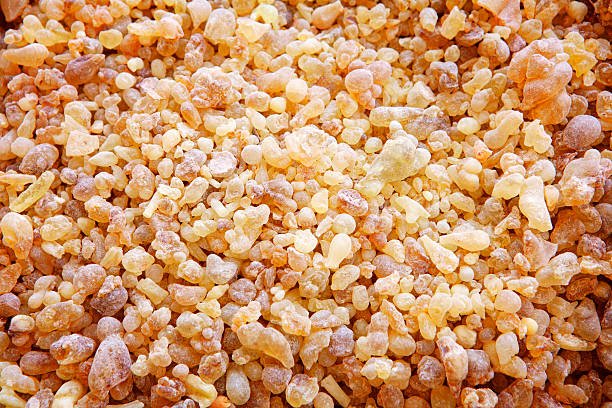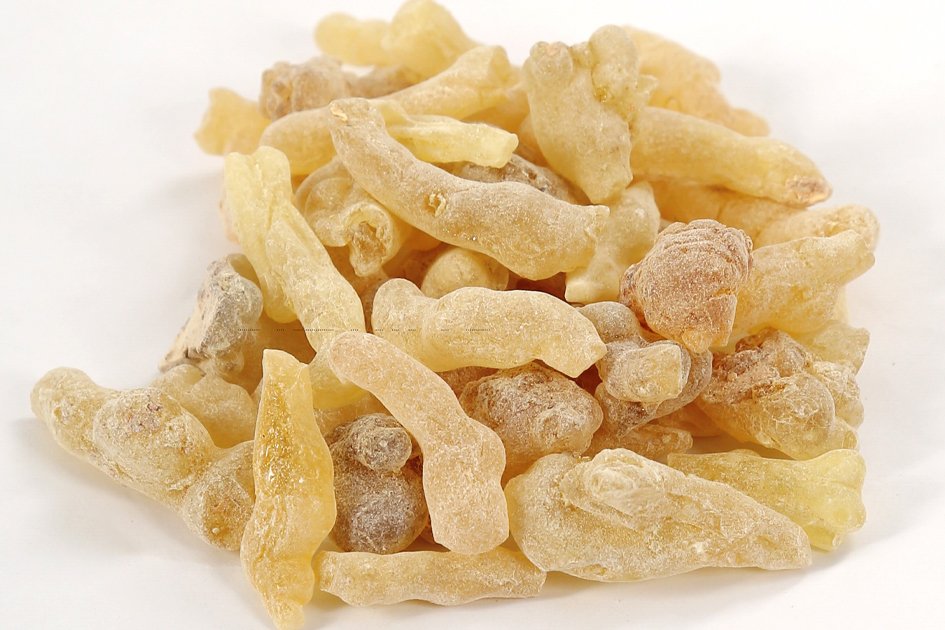Frankincense, also known as Luban Dakkar or Olibanum, is an aromatic resin extracted from trees belonging to the Boswellia genus, particularly Boswellia sacra and Boswellia carterii. This resin has been used since ancient times in religious rituals and traditional medicine.
Botanical Description
Boswellia trees are small to medium-sized, growing in arid regions such as the Arabian Peninsula and Africa. They are known for their ability to thrive in rocky and dry soils. These trees produce compound leaves and small white or pink flowers. The resin is obtained by making incisions in the tree’s bark, allowing the sap to ooze out and harden when exposed to air.
Types of Frankincense
Several Boswellia species produce frankincense, with the most notable being:
Boswellia sacra – Grows in Oman and Yemen.
Boswellia carterii – Found in various African regions.
Boswellia serrata – Commonly found in India, known as “Salai.”
Health Benefits & Medicinal Uses
Frankincense offers multiple health benefits, including:
Anti-inflammatory properties – Used to treat arthritis, colitis, and liver inflammation, often considered a natural alternative to corticosteroids.
Respiratory health support – Helps alleviate asthma and respiratory allergies.
Oral health improvement – Prevents bad breath, relieves toothaches, and soothes gum inflammation.
Digestive system support – Used to treat digestive issues like constipation and diarrhea.
Cultivation & Planting Time
Boswellia trees are cultivated in arid and semi-arid regions and are highly resilient to harsh environmental conditions. They thrive best in rocky or sandy, well-drained soils. Planting is usually done during the rainy season to ensure adequate moisture for growth.
Medicinal Part & Active Compounds
The resin extracted from the tree bark is the primary medicinal component. It contains boswellic acids, which have potent anti-inflammatory and antibacterial properties.
Export Details to All Parts of the World:
Weight: 20 or 25 kg.
Weight and Packaging: Automated.
Packing: Bags or cartons.
Origin: Egyp



